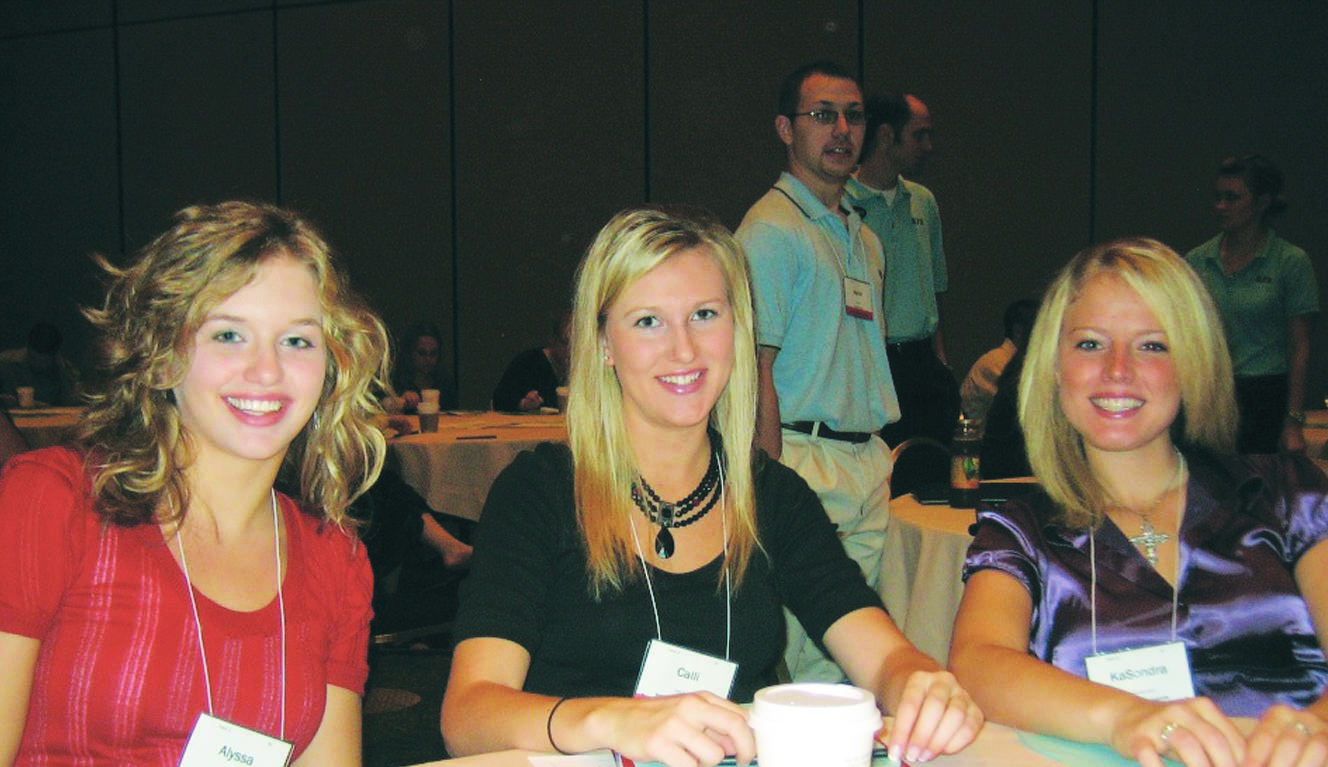- Candidates
- Login
- Set Up Account
- Create a Job Alert
- Search Tools
- Resources
- Employers
I was a freshman at the University of Illinois. My parents had moved me in two days prior along with a handful of belongings I managed to squeeze into my dorm room the size of a hospital elevator. I was excited and scared … it was only day two and I felt like I had just been dropped off at camp.
Before my parents left they told me, “College will be one of the best times of your life, enjoy every minute of it. Academics are incredibly important, but college is about learning how to learn, networking and discovering who you want to be.”
My mom recommended I get involved on campus in one or two organizations that would help me accomplish those three things. She also said I should take time to settle in, establish my grades and then do research to find the best involvement opportunities for me. I didn’t know it at the time, but this advice helped me to succeed during my first two years of college.
Getting involved in clubs and organizations is one of the most important components of a student’s college career. Involvement provides opportunities for students to learn from experience; network with peers, staff, faculty and professionals; and discover who they are and who they want to be in the future.
Looking back, my parent’s advice was right on target. I hope their words of wisdom along with my five tips to successful involvement will provide you the tools you need to get involved.
Tip 1: How to discover your involvement options. Finding the optimum clubs and organizations for your interests is not always easy — especially if your university has many options. My first move was attending Quad Day, a day that showcases many of the student organizations on campus. While most universities probably don’t use this same name, many have similar functions Events like Quad Day can be overwhelming, but they present a variety of options for you to pursue. Your university’s Web site and campus fliers can also serve as useful search tools.
Based on my experience, the best way to find your organization of choice is to ask an upper classman within your area of study or to visit with your dean, department chair or career services coordinator. These people are knowledgeable about the involvement opportunities and can direct you to a respected organization that caters to your interests. An upperclassman and one of the assistant deans in my college recommended that I join the ExplorACES committee which coordinates the largest recruitment event for the College of Agricultural Consumer and Environmental Sciences.

Students from the Illini Agricultural Communicators of Tomorrow take a professional development trip to Rhea + Kaiser, a full-service agency based in Naperville, IL, that works primarily with clients in the agriculture industry.
Tip 2: What to look for in an organization. During your search for involvement opportunities, you will discover that there are a variety of options.
In order to maximize your involvement experience, I suggest you look for a few key characteristics. Most importantly, focus on organizations that relate to your degree. These organizations will interest you, look great on your resume and compliment your academic studies.
I joined Agricultural Communicators of Tomorrow (ACT) to enhance my professional learning experience. However, it is equally important to be involved in organizations that are unrelated to your degree. This type of involvement can provide you with exposure to new topics and shows that you are a wellrounded individual with a variety of interests.
It is also smart to examine opportunities within the organization including leadership roles, mentoring relationships, networking opportunities, community service and career development. An organization that encapsulates all of these opportunities for me is Agriculture Future of America (www.agfuture.org).
One way to discover elite organizations is to contact alumni in your area of study. These professionals can tell you what organizations they were involved in as college students and how it benefited them in their careers.
During my Ag Journalism Fellowship with Monsanto, I asked my mentor, a University of Illinois alumna in my degree program, which student organization has been most valuable to her career and she recommended the Student Advancement Committee. To date, my involvement on the Student Advancement Committee has been one of the best decisions I have made because it combines service to the university with personal and professional development opportunities and it is well known among employers in the agriculture industry. Be sure to check out honors councils, ambassador programs and student advancement organizations on your respective campus.
Tip 3: When to get involved and how to find balance between academics and involvement. I believe this step is rarely discussed, but incredibly important to your academic success, especially as a freshman in college.
Many students seek out involvement opportunities immediately and quickly become too involved and overwhelmed. College is a big step. Moving away from home with newfound freedom and jumping into fast-paced, difficult classes often leaves students in unfamiliar territory facing new challenges. Take time to adjust to this new lifestyle and establish a strong GPA before getting involved.
When you are ready to get involved, start with one or two organizations and critically determine how much involvement you can manage without interfering with your academics. I researched involvement opportunities my first semester on campus, but waited until my second semester to participate in a few select organizations. As a result, I made a smooth transition into the college lifestyle, established a high GPA and learned the delicate balance between academics and involvement.
Tip 4: How to get involved. Once you have found a few organizations of interest and are ready to get involved you have a couple of options. One way to get involved is to attend an event hosted by the organization. While you are there, introduce yourself to the leaders and request more information about what you can do to become a part of the organization. You can also volunteer to help the organization if they coordinate community service projects or special events.


Conferences provide personal and professional development opportunities and are a great way to meet students who have a passion for agriculture, but offer unique perspectives on the industry. (At right) The Internet is a great place to search for involvement opportunities. Discover what Agriculture Future of America has to offer by visiting their Web site at www.agfuture.org.
Some elite organizations require an application and/or an interview process. If this is the case, contact an advisor or leader in the group to learn how to be included in the application and selection process.
Tip 5: How to further your career through involvement. Take on leadership roles. In leading your organization effectively, you demonstrate responsibility, organization, initiative and innovation — key skills employers seek.
It is also important to increase or improve your involvement on an annual basis. This shows you are a respected member of the organization who others want to work with.
Make a point to learn from respected leaders in the organization as well as your own successes and failures. These are valuable lessons that will aid you in making future decisions and becoming a better leader.
Take every opportunity to network with peers, administrators, faculty, staff and professionals — you never know who you will work with in the future. Utilizing your special skills or area of study in an organization can also be valuable to your professional development.
Since my major is agricultural communications, I seek opportunities to develop marketing materials, redesign Web sites and write for group publications.
One of the most important things to take away from your involvement is proof of your abilities. When a potential employer asks you in a job interview to describe a particular situation and how you handled it, you should be able to draw from your involvement experiences to provide an effective answer of how you utilized your abilities to solve a problem.
Now that you have the tools to guide you to successful collegiate involvement, I hope you seek an organization that is perfect for you and run with it!
“College is one of the best times of your life, enjoy every minute of it. Academics are incredibly important, but college is about learning how to learn, networking and discovering who you want to be.”
Go out there and get involved!